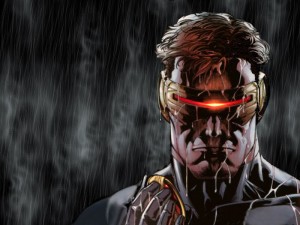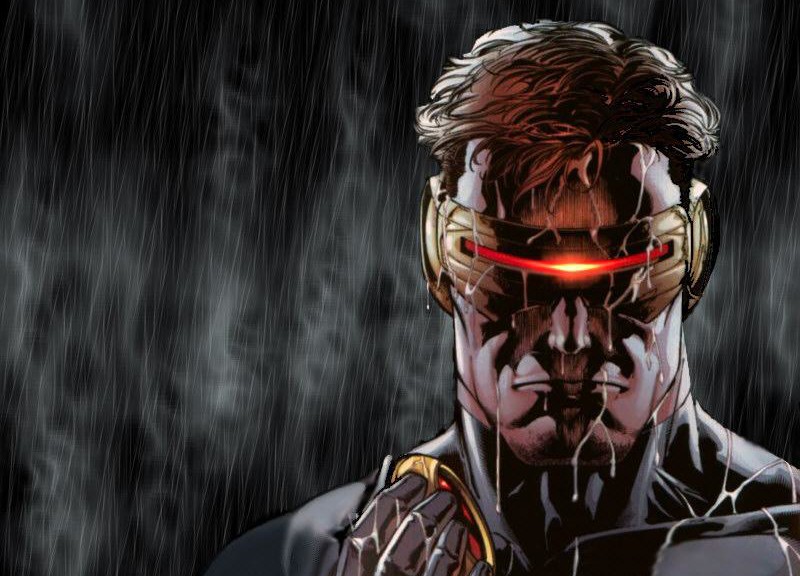 In a piece last year for Nomos Journal, I explored how the ancient Greek myth of the Cyclops compared in Homer’s Odyssey to the modern graphic novel The Encyclopedia of Early Earth by Isabel Greenberg (December 2013). Homer’s account became the definitive text in the West for the mythical concept as well as the hypothetical, physical characteristics of this creature. As I argued in that piece, however, whenever a myth gets re-appropriated and re-produced by a different culture, it is subject to modification. While some see a loss of the original “essence” of a myth, others view this change as a positive thing insofar as it is by this modification that myth remains dynamic and relevant for a different people and time.
In a piece last year for Nomos Journal, I explored how the ancient Greek myth of the Cyclops compared in Homer’s Odyssey to the modern graphic novel The Encyclopedia of Early Earth by Isabel Greenberg (December 2013). Homer’s account became the definitive text in the West for the mythical concept as well as the hypothetical, physical characteristics of this creature. As I argued in that piece, however, whenever a myth gets re-appropriated and re-produced by a different culture, it is subject to modification. While some see a loss of the original “essence” of a myth, others view this change as a positive thing insofar as it is by this modification that myth remains dynamic and relevant for a different people and time.
The graphic novel is a prime example of how ancient stories remain relevant for a modern audience. The explosion in graphic novel production in recent years has given us plenty of data for the types of modifications that occur in these ancient myths. By investigating which types of modifications occur, we can find out what particular cultures value, and what they do not. Elements of ancient myth that conform to modern values will be retained or strengthened, in other words, while elements of ancient myth that are irrelevant to modern culture and sensibility will be minimized or removed. With an attention to what is retained/removed and highlighted/diminished between the two permutations of a given myth, we can identify more concretely different cultural values.
It was with this understanding that I compared Homer’s Cyclops Polyphemus to Greenberg’s graphic novel depiction of the Cyclops in her own imaginative re-telling of parts of the The Odyssey. It turned out that, save for some basic characteristics in form (large, monstrous, and one eye) and landscape (seemingly isolated and generally undeveloped), the episodes were hugely different. There was no dialogue in Greenberg, no contrast between a civilized, social Greek (Odysseus) and an uncivilized or minimally civilized solitary brute (Polyphemus).
The episode in Homer revolved around the concept of hospitality, a socially constructed obligation that Polyphemus flouts and thereby rejects society. Homer also focused on the combination of teamwork and cunning in Odysseus’s escape, two characteristics that defined what it meant to be a citizen in Greek democratic society. Greenberg’s hero uses no teamwork, no cunning, and escapes purely through humorous, dumb luck as a bird poops in the Cyclops’s eye, thereby giving the protagonist time to escape. Greenberg’s hero is a ‘better lucky than good’ protagonist on an individual quest for romantic love, a distinctly modern concept.

Compared to Homer’s Odysseus, Greenberg’s hero – with a romantic goal, lucky escape, lack of crewmates, and lack of socially constructed value such as hospitality – fully reflects modern, Western culture’s value of individualistic identity over and against Homeric Greece’s socially constructed identity.
But there is another prominent Cyclops in the modern graphic novel, the Scott Summers of Marvel Comics’s X-Men fame. If my above argument is correct, that Greek concepts of socially structured identity become effaced when translated into modern culture, we should expect that a comparison of Homer’s Polyphemus and Marvel’s Cyclops yields the same result: some core similarities in terms of physical form, perhaps, but large-scale differences in interactions and identity.
Let’s turn to the Marvel Cyclops, then (the pre-AvX version, for clarity’s sake among recent readers of related series), to see what we can distill about Scott Summers’s superhero alter ego in order to compare it to Polyphemus.
One of the widest criticisms levied against the Marvel Comics Cyclops is that he notoriously lacks a personality. He is boring in temperament, overwhelming normal in appearance, and wholly devoid of the variety of types of quirks that define the other X-Men. While he is not without his fans, Cyclops is often seen as far too staid for his own good; indeed, message boards in his defense (e.g., see here) often start from the very premise that his reputation is that of an extremely boring character.
Yet beyond being notable for being un-notable, what does define the X-Men’s Cyclops? From what I can tell, two things.
First, with respect to his character, is his leadership. Interestingly, this is not because of his innate courage, though he is fairly courageous, nor his extreme selflessness, though he is selfless, nor because of his extreme acumen in tactical planning and people management, though he does both well enough. Indeed, it seems that he is the de facto leader (a situation that is often a source of tension with the other X-Men) simply because he does not have the quirks that define the other X-Men that might amount to weaknesses. Cyclops’s boring character means that he is, damning with faint praise here, so utterly dependable. He is the leader, it seems, because he is uninteresting.
This speaks directly to Cyclops’s second defining characteristic where he is, in fact, interesting or, at least, notable. This characteristic exists in his physical form, namely that he shoots beams of energy out of his eyes. When in superhero costume, he is defined purely, it seems, by his single-beamed mask. In other words, Cyclops is defined solely by his single eye. Nothing about his personality denotes his “cyclops-ness,” because he doesn’t have distinct or developed personality traits! As a result, the defining aspect of his “cyclops-ness” is physical, and the only real physical trait here is the single eye on his mask.
That having a single eye, and nothing else, makes one a Cyclops speaks volumes about the disconnect between the modern world’s understanding of the Cyclops and Homer’s understanding of the Cyclops.
Homer used the Cyclops to make a point about the difference between primitive, rural society and advanced, Greek civilization. The Cyclops was Odysseus’s polar opposite. Where the Greeks had laws, social groups, and refined manners (in particular the distinctly social more of obligatory hospitality), Homer is explicit in that Polyphemus lacked these things, being lawless, solitary, and crude. A reading of Polyphemus’s description can be mirror-read onto Greek society with a high degree of specificity and accuracy about what Homer understood (or argued that) it meant to be a Greek: civilization, society, laws, manners, obligations, all what we might call a ‘structured identity’ based on formal relations with others.
The modern West does not have a socially-structured view of identity, despite a highly developed civilization, set of laws, and civil society. Our main view of selfhood, particularly amongst the Millennial generation, is one of individualism. Check any Facebook profile and you will likely see an individual’s likes, dislikes, beliefs, preferences, and opinions. What you will only rarely see is any indication of a person’s background, ancestry, family occupation, and city of birth as you would see in any Homeric description of a character. One suspects Odysseus’s Facebook profile would prominently display his ties to the land of Ithaca, his best and most recent offerings to Athena, and his family’s relationship with the families of Menelaos and Alcinous.
So what does this mean for our comparison with the Marvel Comics Cyclops? I think it shows that the X-Men comics reflect our modern, Western move away from structured identity and toward individualistic identity by effacing Polyphemus’s distinct traits. Very little of Homer’s Polyphemus remains in Scott Summers outside of their unifying characteristic of a single eye. When someone today thinks of a “cyclops,” they might think of a monstrous human devoid of civility. But more likely, they need only to think only about something with only one eye. The Cyclops Rell in the movie Krull was simply a strong man possessing one eye; he was distinctly noble, and he had no role in defining the character and society of the protagonist by contradistinction.
Most people today who think “cyclops,” even those who think of it as a monstrous brute (probably those who have read Homer!), are unlikely to think of the Cyclops as a foil to civilization, as a distinct “other” that defines the civilized, social human by comparison. Homer’s Cyclops is gone; all that remains is a single eye – and that remaining single eye, it seems, is how Scott Summer’s Cyclops is entirely defined.

